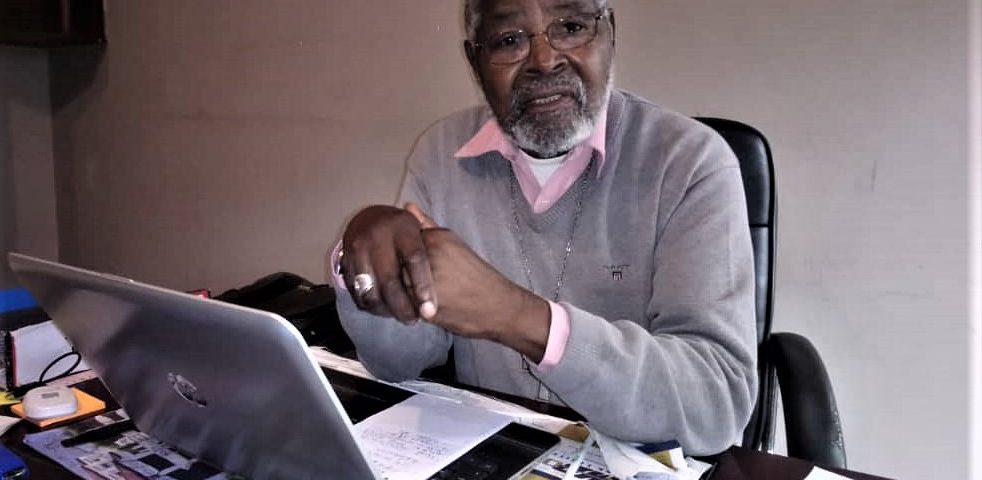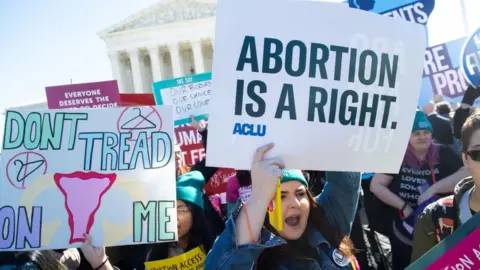
Vandalism, theft of infrastructure bleeds Mutare City Council
October 8, 2019
BancABC to roll out Smart Payment Solutions partnerships with local authorities
October 21, 2019City of Mutare 2019 Supplementary Budget Condemned, Response Mooted

UMRRT director, retired Bishop Sebastian Bakare speaking on the recent 2019 Supplementary Budget upward review by Mutare City Council.
“Part of the cause of apathy as to why citizens are not attending budget consultative meetings is because their views and aspirations are not captured in the final budget statement itself. Part of the apathy at local level comes from the fact that local authorities do not exercise transparency and accountability in terms of availing their accounting records for public scrutiny to ensure public trust,” read the ZIMCODD statement.
…Council neglected the will of the people: UMRRT
Ngoni Dapira
MUTARE residents are calling for a redress of the 2019 Supplementary Budget effected on August 28 by Mutare City Council. They say it is insensitive of the local authority to force things on them, especially after they participated and shot it down for evaluation during public consultations.
In an interview with the United Mutare Residents and Ratepayers Trust (UMRRT) director, retired Bishop Sebastian Bakare, he slammed the uncivilized and undemocratic disregard for public consultation resolutions that was shown by the City of Mutare Councilors. The former Anglican Church Bishop of the Diocese of Harare and former Bishop of Manicaland who now directs the residents association which was established in 2013 and claims to have ward committees in all the 19 wards in the city, said residents were not pleased by the resolution made by Council of effecting the supplementary budget, regardless of objections by the city`s various stakeholders.
Bishop Bakare said that it was thoughtless for the local authority to take residents for granted because this could lead to boycotts as was previously done.
“We have already engaged the local authority regarding the matter because residents deserve an explanation. Council should take these budget consultation meetings seriously. If the majority of residents rejected the supplementary budget, the council should have respected that because they are there to serve the residents. Budget consultations will lose their value due to the council’s failure to implement submissions by residents and after this move, for me it means consulting is a matter of teasing people. The budget consultation is the most important process that is supposed to bring out favourable solutions to both parties for buy-in, but if treated like a ceremonial event the aftereffects may be resistance and I am sure they do not want that,” he said.
During its special Council meeting held on August 28 after completing its supplementary budget public consultations, Council passed a resolution and approved the 2019 supplementary budget in terms of section 219 of the Urban Councils Act. Although some proposals which concern high density areas await for approval by the Minister of Local Government, Public Works and National Housing, July Moyo, the supplementary budget proposals for commercial, industrial, institutional and low density areas were approved in accordance with the Urban Council Act.
The local authority intends to raise its preliminary 2019 budget of $31.1 million to $36.4 million through various tariff measures proposed to try help the ailing local authority recover hyperinflation and rise in the cost of goods and services to meet service delivery targets. Mutare City Council public relations officer Spren Mutiwi said the major proposals that were approved in the supplementary budget were the Road levy for all 30-tonne trucks in transit through the eastern border city that will see local truckers pay $30 (RTGS) and foreign truckers $50 (RTGS), an 800 percent tariff increment on all commercial, industrial and institutional areas, 500 percent increment on all billiables outside local government authorities, all land debtors outstanding balances were increased by 500 percent for all serviced areas, health fees were increased by 200 percent, parking fees were increased from $1 to $5 (RTGS) per hour while clamping fees went up from $30 to $180 (RTGS).

Part of the service delivery that the local authority wants to ensure.
This saw a sharp increase of water and rates charges in September but ironically salaries remain stagnant and people are expected to miraculously make ends meet. Some commercials and industrial properties that were paying the local authority $900 (RTGS) now pay over $8000 (RTGS) whilst some residents in the low density suburbs that were paying approximately $100 now have to over $400 (RTGS). Most people that EasternTimesZim talked to said the increment was unsustainable and not affordable and it would hit hard on tenants.
Citizens in their different groups or as individuals have a responsibility to participate in the crafting of local and national budgets. The importance of citizen participation in economic governance like the budget making process is reinforced by Section 3(2) (a) of the Zimbabwean Constitution which states that the state must respect the people of Zimbabwe from whom the authority to govern is derived. So, in this context when citizens participate in formulating a budget at any level, they are re-emphasising the importance of the power they possess to determine the course through which local and national development takes off.
Rtd Bishop Bakare however said it must be made absolutely clear that as residents and ratepayers they do not want to see the city council collapse and were not against an upward review of the local authority’s 2019 budget.
“What the local authority is asking for is the norm because things are going up everywhere. However, if they cared about the people they should have come back to ask what do we do? But the problem is they did not explain properly and try to find a compromise with the residents. We do not want pseudo consultations on important things such as the supplementary budget. The people are not refusing upward review but had asked for a mutual understanding to have ownership of the supplementary budget as key stakeholders,” he said.
Mutare Mayor Councilor Blessing Tandi supported the supplementary budget during a recently held event in Mutare, where he addressed civic society representatives and residents. His affirmative position on the matter was regardless of the mixed feelings raised by some residents and civic society groups over the supplementary budget. He said the increments were beyond reasonable considering the unavoidable, volatile hyperinflationary environment in the country.
Mayor Tandi said Council is a lower tier of government with its own autonomy, so it is caught up in a chicken and egg situation on resource mobilisatiion and desperately needs the residents to play their part.

Mutare Mayor Blessing Tandi
“People are crying that there is a supplementary budget and we do not have money for service delivery. So if you (residents) do not have money who will finance the council for service delivery. It is such criticism that is impeding development. We do not deny politics. Politics is the order of the day. We do not deny people of their rights to civic participation, but let’s have meaningful criticism. As councils we are facing a lot of problems because of legacy issues. People do not want to openly look at the root causes of our poor service delivery. Let us not always be in a confrontational attitude,” said the Mayor in response to a litany of questions raised during the meeting.
Clr Tandi said the resolution was in accordance with the Urban Council Act which was passed through a full council meeting. “People may complain that 900 percent increase in rates is too much but on the ground at the rate that inflation is moving in two to three months this will be nothing, of which as local authorities we have a disadvantage that we cannot easily and constantly change our tariffs like the private sector…We have a challenge with our people in terms of supporting local authorities. What we did was justice. We raised our rates maximum of 800 percent compared to the 1000 percent increment being done by businesses. People should support the local authority by paying what is due just like they respond to the current national price increments driven by market demand and supply,” he said.
However, residents and other stakeholders expressed reservations at the supplementary budget saying the proposed new tariffs were beyond the reach of many.
The UMRRT director added that the local authority did not take into consideration that the residents and business are equally struggling and their extreme increments will lead to upward rental charges which most people cannot afford.
“It is not only the local authority that has been affected by the economic meltdown in the country, but residents are also suffering. Council has to understand that very few people are employed in Mutare in the low density suburbs. Most are pensioners that bought these houses over 30 years ago. Even those in industrial and commercial sector are struggling. 900 percent increase is too much and it will increase rentals to unaffordable charges,” he said.
A Constitutional Law and Human Rights Law expert Dr Admark Moyo said the local authority violated section 68 of the Constitution on the rights of the people to administrative justice, whereby their administrative action after the rejection of the supplementary budget during public consultations was unlawful, unreasonable and impartial, adding that citizens also have the power to compel Council to provide written reasons for its conduct.

Dr Moyo
“Citizens have multiple alternatives to hold Councilors accountable. First they can drag Council to court and seek a reversal of decisions that are unjust on the citizens. Secondly, they can publicise their outrage through media, including social media platforms, then thirdly, people have a right to demonstrate in the streets and to go to the city council and present petitions. If something like this happens there should be media coverage of the event and the citizens can threaten to vote everyone (councilors) out of their terms for betraying public trust,” said Dr Moyo.
In a statement released by the Zimbabwe Coalition on Debt and Development (ZIMCODD) towards the importance of public budget consultations following deliberations made during the Public Finance Management Reform Indaba convened in Mutare last month, the social and economic justice body stated that in the case of Zimbabwe, perennially, national or local public consultations have been characterised by poor citizen participation and apathy be it at local or national level, citizens have generally expressed a lack of interest in budget making processes.
“Part of the cause of apathy as to why citizens are not attending budget consultative meetings is because their views and aspirations are not captured in the final budget statement itself. Part of the apathy at local level comes from the fact that local authorities do not exercise transparency and accountability in terms of availing their accounting records for public scrutiny to ensure public trust,” read the ZIMCODD statement.
It added that the present model of pre-budget meetings that just rushes through the process and does not cover each and every ward in the country is not democratic and is clearly inconsistent with the Sustainable Development Goals (SDGs) that speak of “leaving no one behind,” in the development process.
On another note the Rtd Bishop also called out Council not to have sacred cows exempted from paying whilst others are subjected. “Residents also want to know who is defaulting in terms of how much is owed currently. Some people continue to resist because they assume there is the ’privileged list’. We know it’s there and Council is being compromised by these individuals who owe tens of thousands of dollars, often politicians and influential businesspeople,” he said.


